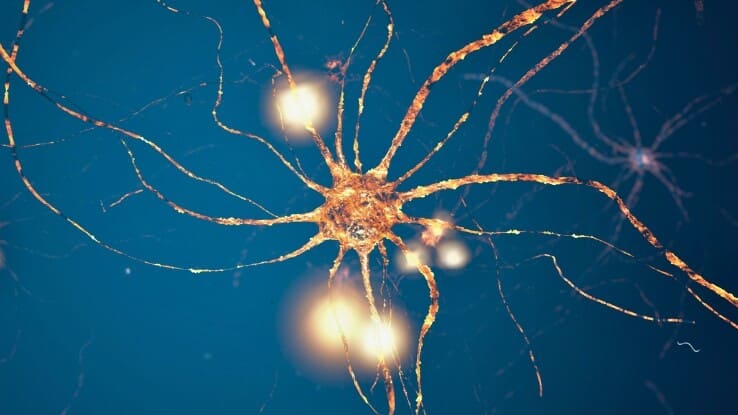
Neurological roots: Gut-wrenching eating disorder result of brain chemical deficiency
What's the story
A recent study on male mice suggests a neurological basis for anorexia nervosa, a severe eating disorder. The research, led by neuroscientist Mathieu Favier at McGill University, found that the disorder may be linked to a deficiency in acetylcholine, a specific brain chemical. This deficiency was observed in the striatum, an area of the brain associated with learned behaviors and reward systems.
Genetic link
Genetic mutation and eating disorders connection
Favier's team began by confirming the link between a rare genetic mutation and substance use disorders, including eating disorders. The p.T8I variant of the SLC17A8 gene was found in only nine of 793 cases studied. Both types of disorders share common traits such as hard-to-break habits and compulsive behaviors, driven by restriction in eating disorders and 'rewards' in substance use disorders.
Treatment success
Alzheimer's drug reverses anorexia-like behavior in mice
The researchers treated the genetically engineered mice with donepezil, which is an Alzheimer's drug. Following treatment, the mice began eating normally and fewer lost weight after previously exhibiting behaviors similar to binge eating and restrictive eating. "We found that it fully reversed the anorexia-like behavior in mice," said Salah El Mestikawy, senior author of the study and a neuroscientist at McGill University.
Human trials
Pilot study tests donepezil on anorexia patients
Ten patients have been treated with low doses of donepezil in a Canadian study. Randomized controlled trials are planned to test if this treatment is more effective than a placebo at alleviating anorexia nervosa. However, until these trials are completed, it is uncertain how well the findings of this animal study will translate into humans, and if restoring acetylcholine levels is an effective treatment strategy.
Considerations
Study limitations and future implications
The study involved male mice, despite eating disorders predominantly affecting women, suggesting potential sex-based differences that have not been accounted for. Donepezil also has known serious side effects, hence the clinical trials will only test low doses of the drug. Despite these considerations, the results offer cautious hope for a potential medication to treat anorexia, a disorder with one of the highest mortality rates among severe psychiatric disorders.
Genetic insights
Genetic markers and anorexia
In 2019, scientists identified eight genetic markers associated with anorexia after examining DNA samples from nearly 17,000 patients with anorexia nervosa, and approximately 55,000 people without the disorder. Some of these genetic variants relate to the way people metabolize fats as well as sugars. Discovering these biological underpinnings can aid in reducing the stigma associated with mental health conditions by demonstrating their physiological basis.